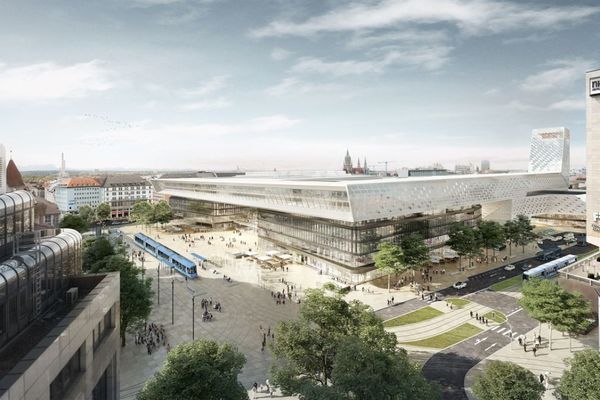Metamorphosis of Munich's Central Station
Ecological Urban Development - A Balacing Act between Sustainability and Gentrification?
01.10.2023
By Bernhard Fischer
Supervisor: Dr. Gesa Lüdecke

(Foto: DB Station & Service AG/Architekten Auer Weber)
My final project takes the example of Munich’s Central station district (Bahnhofsviertel) to explore the intersection of climate adaption and mitigation in urban spaces, and social issues, such as gentrification and climate justice. For this aim, I have looked at current projects and talked to four persons who are or have been involved in this crucial process in various ways: a scientist, a traffic planer, a social activist, and an environmental organisation’s representant. Lately, several civic organisations have presented plans to plant greenery and reduce car traffic in the Central station district to deal with the soaring heat and bad air quality in the neighbourhood. The construction of the new Central Station, completed by the 2030s, may also have a considerable impact on the district.
Munich’s central station district has often been depicted in a negative, sometimes pejorative way by local media outlets: poverty, crime and neglect give the direction to local media reports. While social inequality becomes quite visible in the area, the official police report shows that crime rates have gone down or rising crime rates are the result of more controls and bans, such as the ban on alcohol.
It appears that greening the Central Station area is not only a mean to mitigate the effects of the climate crisis but also a way to grade up the whole district and make its negative image vanish. My interviews have shown that none of those in charge wants to fuel gentrification, but some also state that they personally don’t like the public spaces around Central Station and think they’re not adequate to linger. One person has the suspicion that some may use the climate adaption measures to get rid of marginalized groups in the neighbourhood. But none of the interviewees had a concluding idea what could be done for those groups who might face exclusion. Meanwhile real estate projects in the Central Station area also display lots of greenery, conveying an eco-image.
Scientists, such as sociologist Reinhard Neckel, have recently warned, that sustainability policies can worsen social inequality and will only be accepted, if they don’t make life harder for those without big financial resources. The current projects are going to change the urban spaces in Munich, but also the ways we use them and maybe also who uses them. Thus, a careful consideration is necessary to avoid further climate injustices and extrusion. My research has also shown that gentrification is ongoing in the Central Station district even before public spaces have been reshaped. To pass on climate mitigation measures in order to avoid gentrification misses the actual cause of gentrification: land use. Social land laws are thus unavoidable in order to curtail gentrification and extrusion processes.

